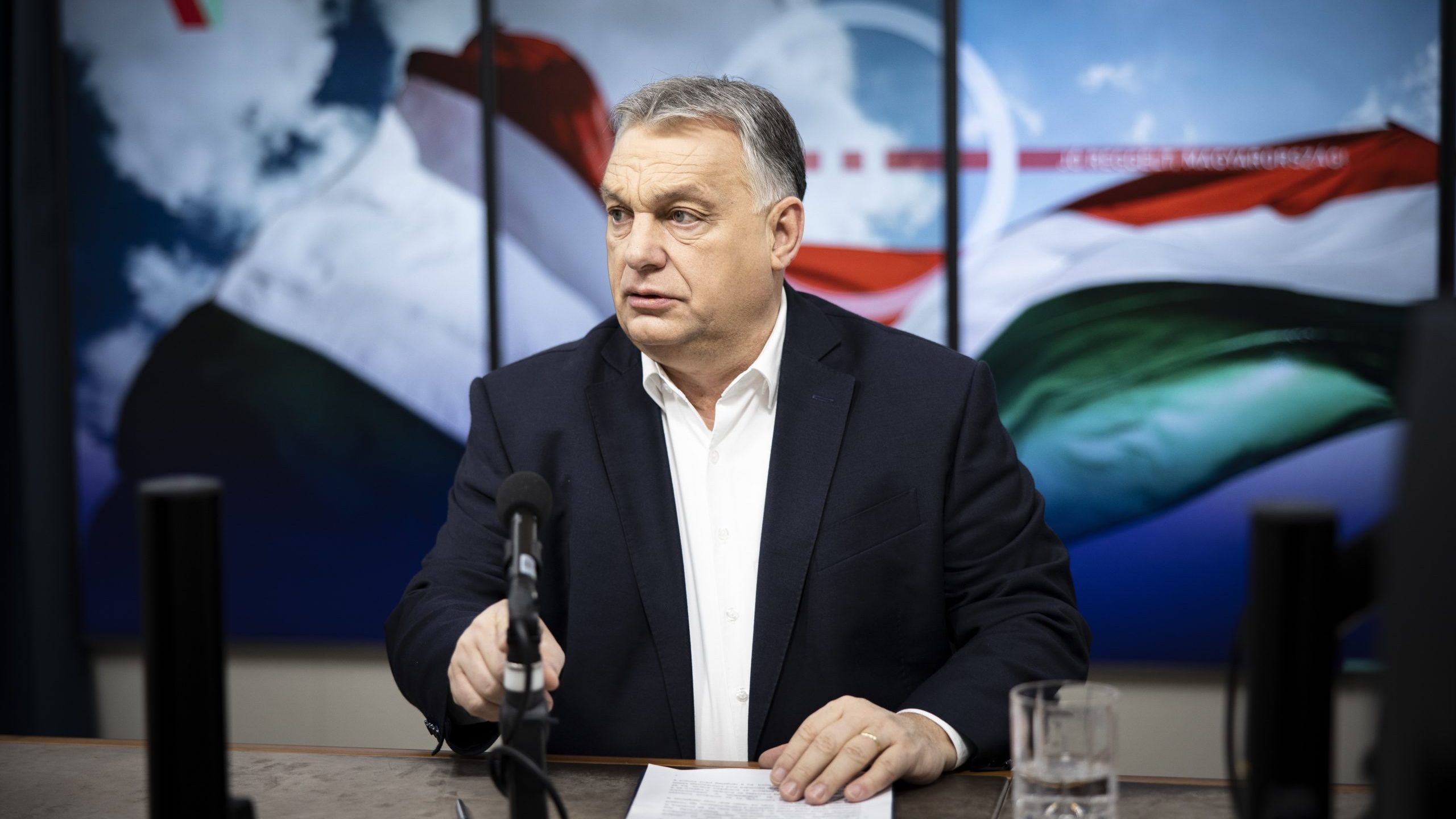
The Prime Minister said that “I see signs of exhaustion at the end of the parliamentary term”, but after next year’s elections to the European Parliament (EP) there will be new MEPs, and “I believe that the quality of democracy will improve”.
Regarding the issue of the so-called “migrant visa”, Mr. Orbán said that “it is rather funny” that a vote on an issue must repeated over and over again until the result seen by bureaucrats as the right one is finally achieved.
At the same time he asked why this is tolerated by MEPs, who are expected to stand up for the interests of the people who send them to the EP, and added that “If I tried something like this here in the Hungarian parliament, I would face a rebellion not only from the opposition, but also from the members of my own parliamentary group”.
He noted that no democracy – including in Hungary – is perfect, but that the variety in Brussels is even further from such an ideal.
The Prime Minister said that the dispute with Guy Verhofstadt, leader of the Alliance of Liberals and Democrats for Europe in the EP, clearly demonstrates the difference between democracy in Western European countries and in Central European countries: “They have a weary, institutional democracy […] and if the elite sees that they are being attacked, they are offended. We have never had the luxury of freedom from attack: I have been a Member of Parliament since 1990 and prime minister for a combined total of thirteen years, and every morning I wake up to find that someone is taking a shot at me.” Mr. Orbán added that “here one has to fight on in the face of every attack”, and that “here one cannot play the king: you have to fight like a street fighter, even to defend decisions which are self-evidently good”.
He said that the “Sargentini Report” has been used to attack Hungary, and “we’ve hit back just as hard as our attackers – or possibly even harder.” he confirmed that the Government will not tolerate anyone trying to destroy the country’s reputation and integrity, observing that “those who bite us will need strong teeth, because that is something which we shall not tolerate”.
The Government recently commissioned a van displaying a billboard which warns of the consequences of pro-immigration policies. This was stopped by police in the streets of Brussels and the driver was told to remove the image of Guy Verhofstadt. In response to this, the Prime Minister said that “there is greater vitality in Central and Eastern European democracy than in its Western European variant”.

Young people must be repeatedly offered assistance in making the commitment to have and raise children
In relation to the national consultation on the protection of families, Mr. Orbán stressed that young people must be repeatedly offered assistance in making the commitment to have and raise children, so that they appreciate that by raising children the quality of their lives will not deteriorate, but improve.
Raising children, he said, is “undoubtedly something which is full of struggles, undoubtedly something in which you must stand your ground, and undoubtedly something which demands financial resources”, but it will be worth making that decision if people feel that the Government budget is also on their side, and “it provides help with housing, wages, taxation, maternity benefits and allowances, and nursery facilities”.
Mr. Orbán also mentioned the national consultation on migration, which had the largest level of public participation. He observed that in Hungary people’s basic life instincts operate well, and they had sensed that the Hungarian people must show great strength in resisting attacks from Brussels.
Economic results are remarkable
Speaking about the state of the Hungarian economy, the Prime Minister said that – unlike 2010, when the country was weak and anaemic – Hungary’s national economy today is resilient, robust, capable of growth and able to provide jobs.
The key to this, he said, is that the Government announced a different kind of economic system – the Hungarian model – which the people have also supported. He described the economic results achieved as remarkable, highlighting that this economic policy has been built on the foundations of Hungarians’ skill and hard work, which has brought about a growth rate of over 5 per cent.
Mr. Orbán went on to say that there must be a continued belief in the capacity of hard work and skill to produce sustainable growth; but leaders cannot afford to become complacent, illusions of automatic prosperity must be resisted, and indeed renewed efforts must be made to attain future successes.
The Prime Minister said that international comparisons are not unjustified, but “I’m not very interested in the others, as they have their own lives […] and there is no point in superficial comparisons”. Observing that it is never wise to judge the quality and goals of one’s own life according to the expectations from life and the development levels of foreigners, he said that “I want the Hungarian people […] to feel successful according to their own logic, to feel that what they are doing has meaning in itself, and not to compare themselves with others”.
He also highlighted that there is still a great deal to do, citing vocational training, improvement of management skills in small and medium-sized enterprises and increased wages – which in turn require improved competitiveness.
Regarding the recently announced pay rise for qualified healthcare workers, the Prime Minister said that healthcare experts have said that the highest priority is improvement of the situation of nursing staff, as they believe this to be the sector’s most critical problem. He said that he had worked on the practicability of this with Finance Minister Mihály Varga for many hours, and they have eventually been able to announce a programme of pay rises of more than 70 per cent spread over a period of four years.

